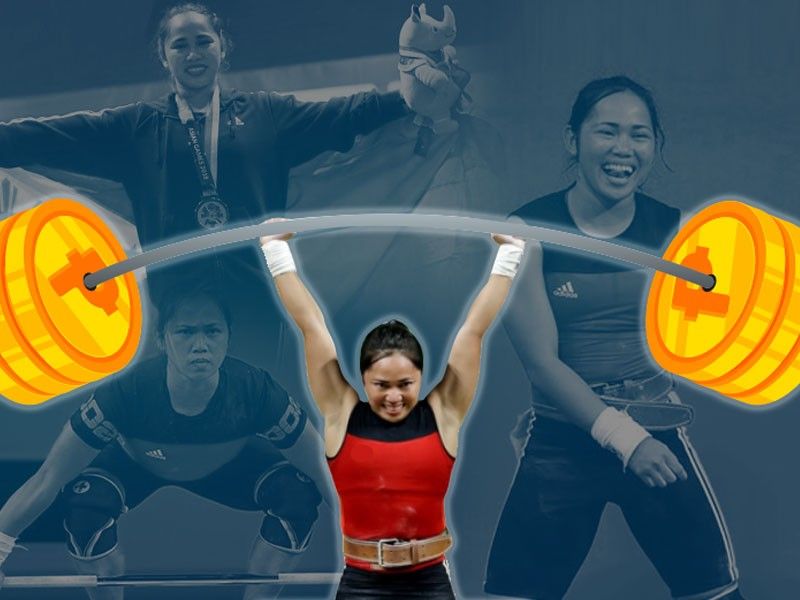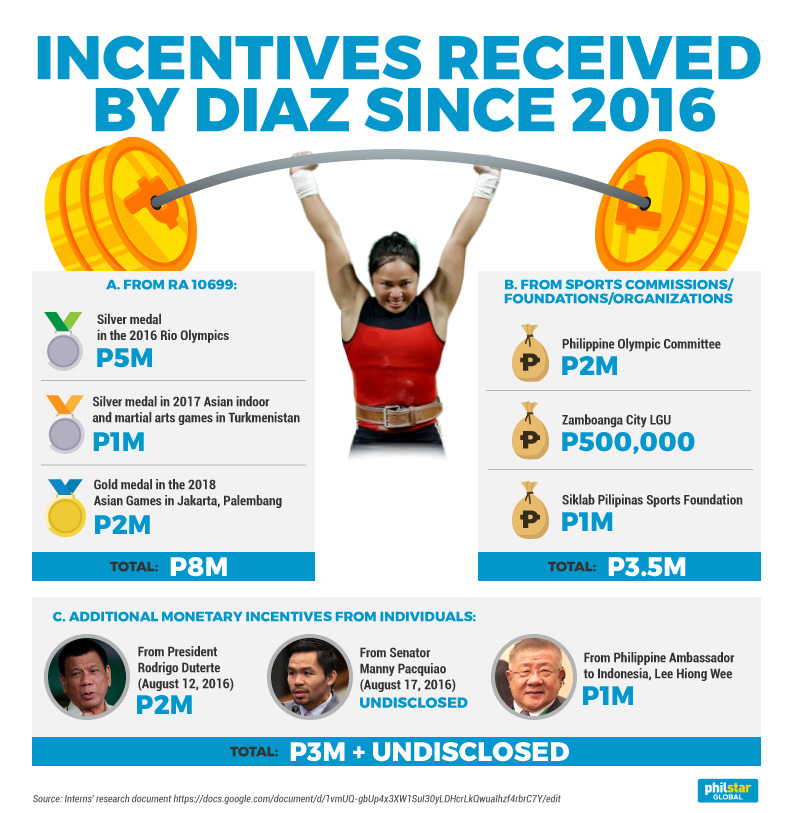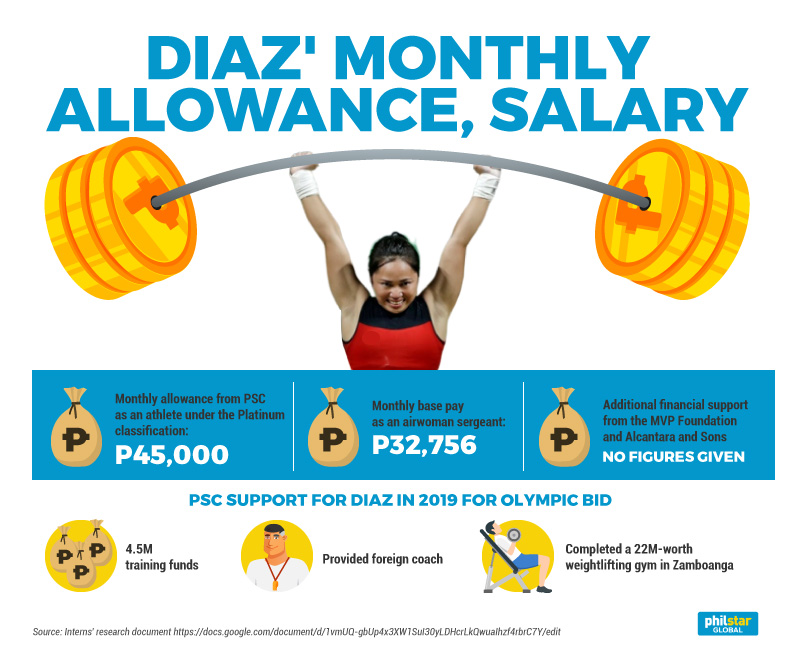The price of an Olympic gold: Breaking down Hidilyn Diaz's money matters

MANILA, Philippines — Olympic silver medalist Hidilyn Diaz recently made headlines after making a plea for financial support on social media.
Posting on her Instagram story, Diaz reached out to her followers about her financial struggles in preparation for the 2020 Tokyo Olympics.
The incident sparked a lot of reactions online. Some commenters were sympathetic to the weightlifter, while others were not.
Shortly after Diaz's post, the Philippine Sports Commission was quick to make statements that they haven't been amiss in supporting the 28-year-old in her Olympic bid.
While the PSC and Diaz have already made amends days after the fiasco, the whole incident raises questions on how much financial support should a national athlete get from the government.
And how much do they even spend for their sport, anyway?
Philstar.com breaks down the numbers.
Incentives, allowances, salaries
While Diaz's post received support online, some netizens also called her out.
Some even alleged that she was asking too much and called her "mukhang pera."
But how much monetary support does Diaz receive?

Since 2016, after winning the country's first Olympic medal in decades, Diaz received more than a handful of incentives.
As stated in RA 10699, Diaz received a P5 million incentive for bagging the silver medal in the Rio Olympics.
She also got a total of P3 million for her gold and silver medals in Asian meets in 2017 and 2018.
Apart from this, Diaz also received bonuses from select individuals.
President Rodrigo Duterte awarded her P2 million while Senator Manny Pacquiao gave an undisclosed amount in August 2016.
Philippine Ambassador to Indonesia Lee Hiong Wee also gifted the weightlifter P1 million.
Diaz was also awarded a total of P3.5 million from the POC and various other foundations and local government units.
However, it is unclear whether Diaz truly received the lump sum of all these monetary incentives and financial bonuses.

Apart from these, Diaz also receives monthly allowances from the PSC. She also gets a monthly salary from the Philippine Air Force.
Diaz is an Airwoman with the rank of Sergeant.
Diaz also received support from the PSC in the form of getting her a foreign coach and contructing a gym in her hometown of Zamboanga.
It is of note, however, that Diaz may allocate these funds to her expenses outside of her Olympic training.
Cost of Olympic weightlifting
After laying out Diaz's financial situation, it now begs the question: How much does it cost to become a weightlifter in the Olympic level?
While any research regarding the cost of weightlifting in the Philippine context remains scarce, there are Western figures that can be compared to Diaz's situation.
According to The Billfold, weightlifting as a hobby can cost as much as up to $632/month (around P33,000).
The monthly estimate includes training and nutrition costs.
But with Diaz competing at the top level, the cost is most likely to increase.
Basic equipment is also estimated to cost almost $300 (around P15,500).
Taking weightlifting to more than just a hobby costs even more.
According to BarBend, joining national weightlifting meets in the US can cost around $1,000 (around P50,000) per trip for travel expenses alone.
There are four to five meets in a year.
Apart from the athlete, there are also expenses to fly the coaching staff and all other personnel the athlete may need to the meets.
Coaching staff must also be paid.
There are also entry fees for national and international competitions.
While actual figures remain unavailable on how much it costs for Diaz to continue her Tokyo 2020 Olympic bid, it is clear that spending for it is no easy task.
Burden of funding
The role of the PSC and the POC in funding Diaz and other national athletes now comes into question.
In an online interview with Philstar.com POC spokesperson Ed Picson clarified their role in the matter.
"The POC is not a funding agency. It is the Philippine Sports Commission that is charged with providing financial assistance for athletes," Picson said.
"The role of the POC is to ensure appropriate participation of the country in such major international competitions as the SEA Games, Asian Games and the Olympics. That said, under the administration of Pres. Ricky Vargas, he took it upon himself to try and source funds to assist the athletes," he added.
Picson also said that the POC has been active in giving out incentives and financial assistance to athletes who will be competing in international compettions.
Additionally, Picson said that the POC has established an "Athletes Commission" to help address athletes' grievances.
"The current POC has activated the Athletes Commission, which is composed of national athletes, to address whatever concerns they may have," Picson said.
With the 2019 SEA Games and 2020 Tokyo Olympics drawing near, our athletes will need all the support to excel. — With research from Ed Mercene, Blanch Ancla and Michelle Co
- Latest
- Trending





























